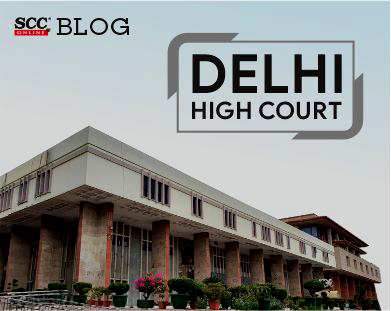Delhi High Court: In a Public Interest Litigation filed for directing the Delhi Police to take actions to abolish all sex rackets, the Division Bench of Satish Chandra Sharma, CJ. and Subramonium Prasad, J. directed the Delhi Police to ensure that all steps were undertaken to prevent prostitution rings from being conducted under the garb of massage parlours.
Background
Petitioner had come across advertisements for massage parlours in newspaper advertisements and through business listings on the online search engine platform Just Dial, obtained the number of an unknown person on Just Dial, who claimed to run massage parlours. Petitioner contacted said unknown person, who asked the Petitioner to pay Rs. 12,000/- on the pretext of meeting parlour girls. The unknown person demanded a sum of Rs. 12,000/- for setting up a meeting with the girls. The petitioner alleged that on reaching the place of meeting, the petitioner was severally beaten up and before the perpetrators could be identified, they had escaped from the spot.
Petitioner stated that he made multiple calls to the police control room to provide information about the sex racket businesses operating at the place of the incident, but it was of no avail. Petitioner also filed RTI Applications to seek status report on the action taken by the police in this matter but after seeing no active response to his complaints, petitioner filed PIL with the following prayers, to pass order/direction to:
-
Immediately initiate actions to abolish all sex/illegal flesh trade from the roots of our society;
-
Take immediate action to conduct an enquiry into the complaint filed by the petitioner;
-
To treat all complaints in a time bound manner;
-
To file a status report qua the total number of massage parlours operating in Delhi and NCR in a time bound manner.
Submissions on behalf of the Petitioner
Petitioner submitted that the operation of sex rackets and prostitution rings were in direct violation of Section 8 of the Immoral Traffic (Prevention) Act, 1956 and transgresses upon the right to life under Articles 21 and goes against ‘Prohibition of Trafficking’ under Article 23. Further, it was stated that the sex racket businesses operating under the garb of massage parlours pose a serious threat to the safety and dignity of women. The petitioner also submitted that the refusal of the authorities to act on his complaints was deliberate and was revealing of the corruption within the hierarchy of the Delhi Police.
Submissions on behalf of the Respondents
Counsel for the respondents submitted that the Police had regularly been investigating into and taking appropriate legal actions against the rackets. Counsel relied on the status report which revealed that enquiries in complaints had already been conducted on the receipt of information in prior instances.
Analysis, Law, and Decision
The Court opined that necessary action had been taken by the police whenever they had been in receipt of information or complaints with respect to prostitution rackets operating under massage parlours. Therefore, the Court directed the police to ensure that all steps were undertaken to prevent prostitution rings from being conducted under the grab of massage parlours.
[Ateet Bansal v. Commissioner of Police, 2022 SCC OnLine Del 4101, decided on 23-11-2022]
Advocates who appeared in this case :
For the Petitioner: Petitioner in person;
For the Respondent(s): ASC, Civil, GNCTD Sameer Vashisht;
CGSC Vivek Goyal;
Advocate Sanjana Nangia;
Advocate Gokul Sharma.






